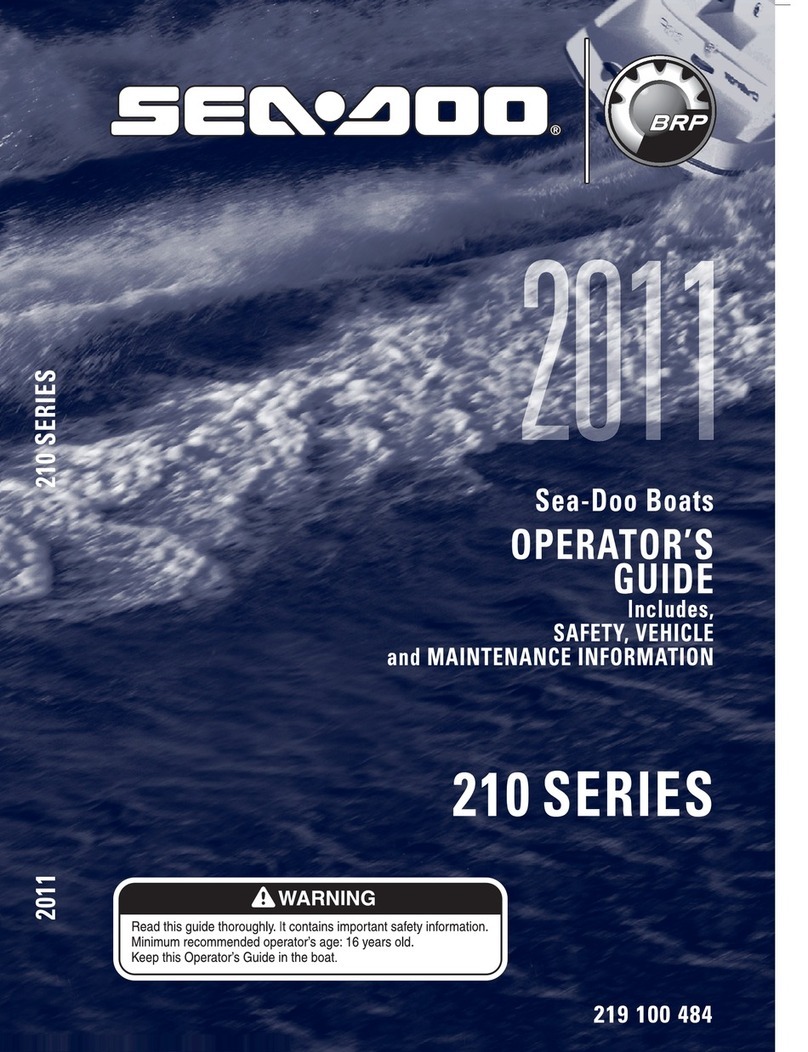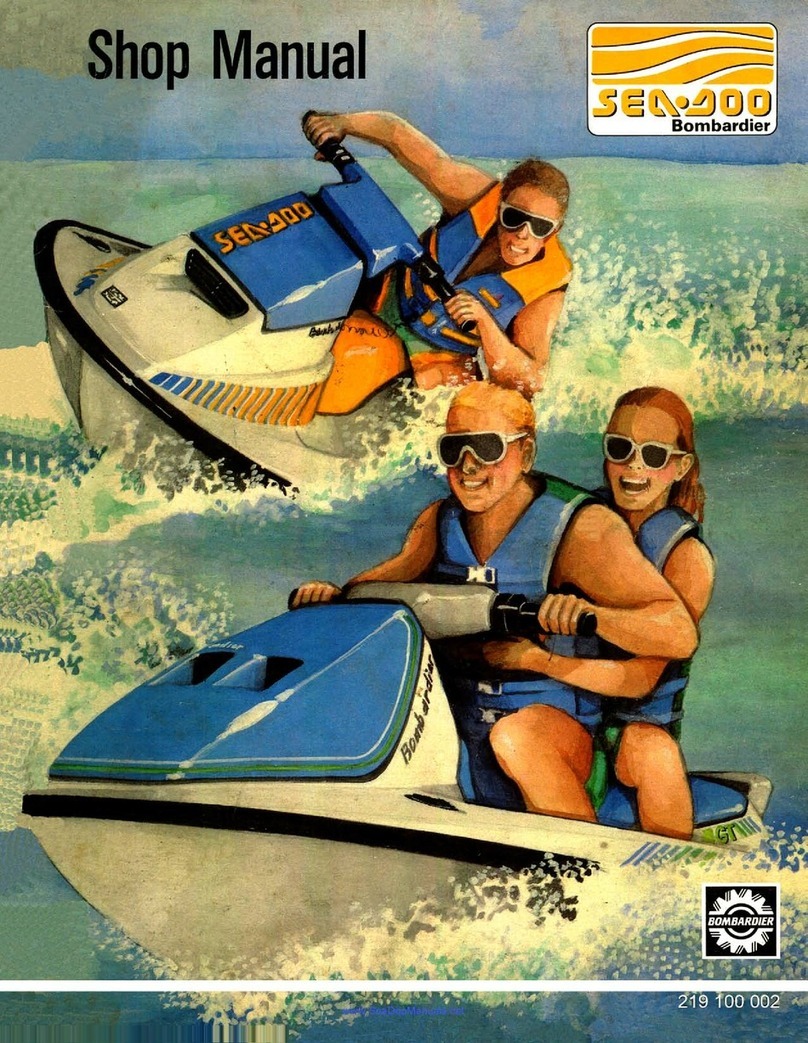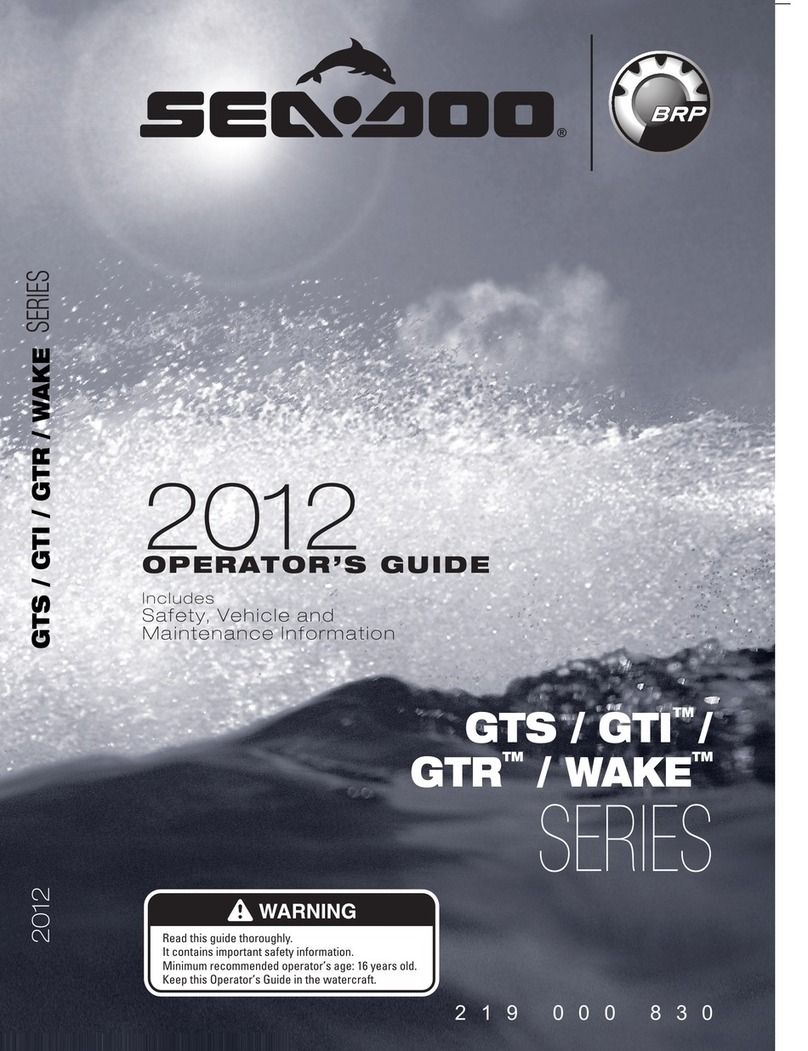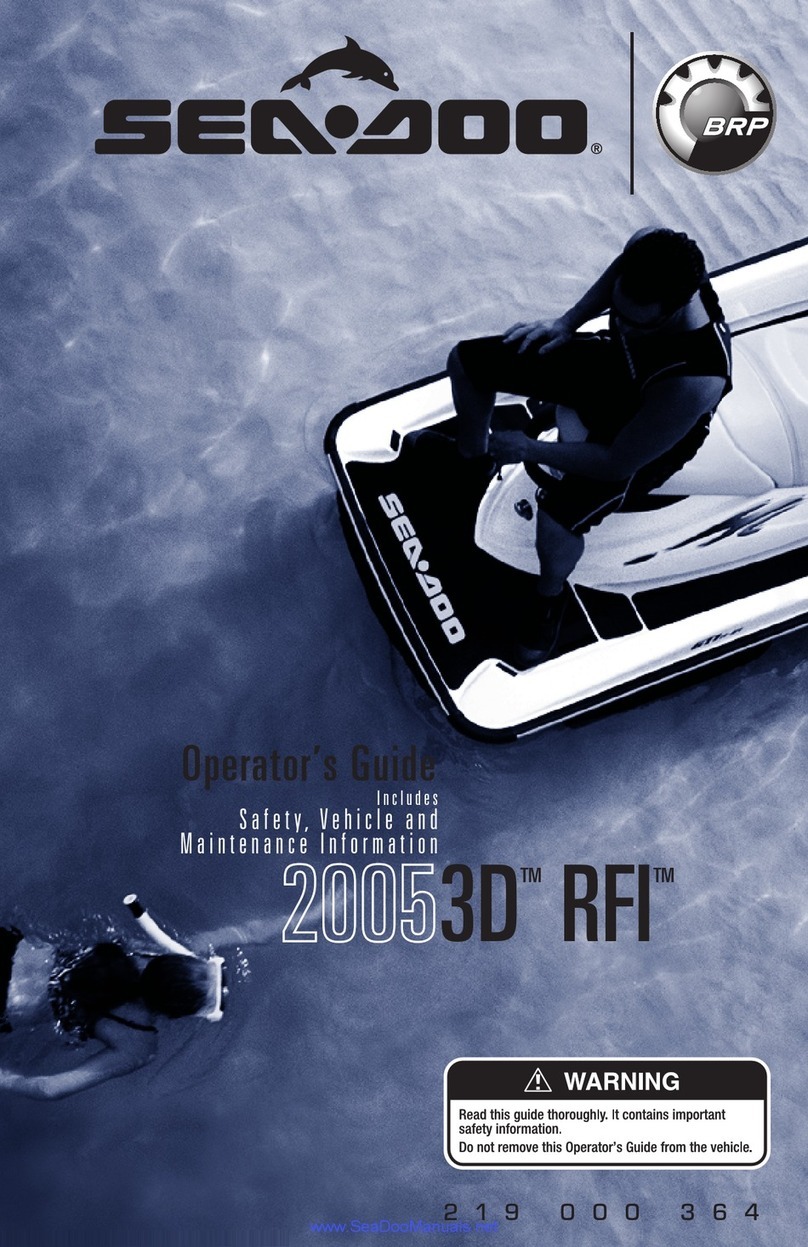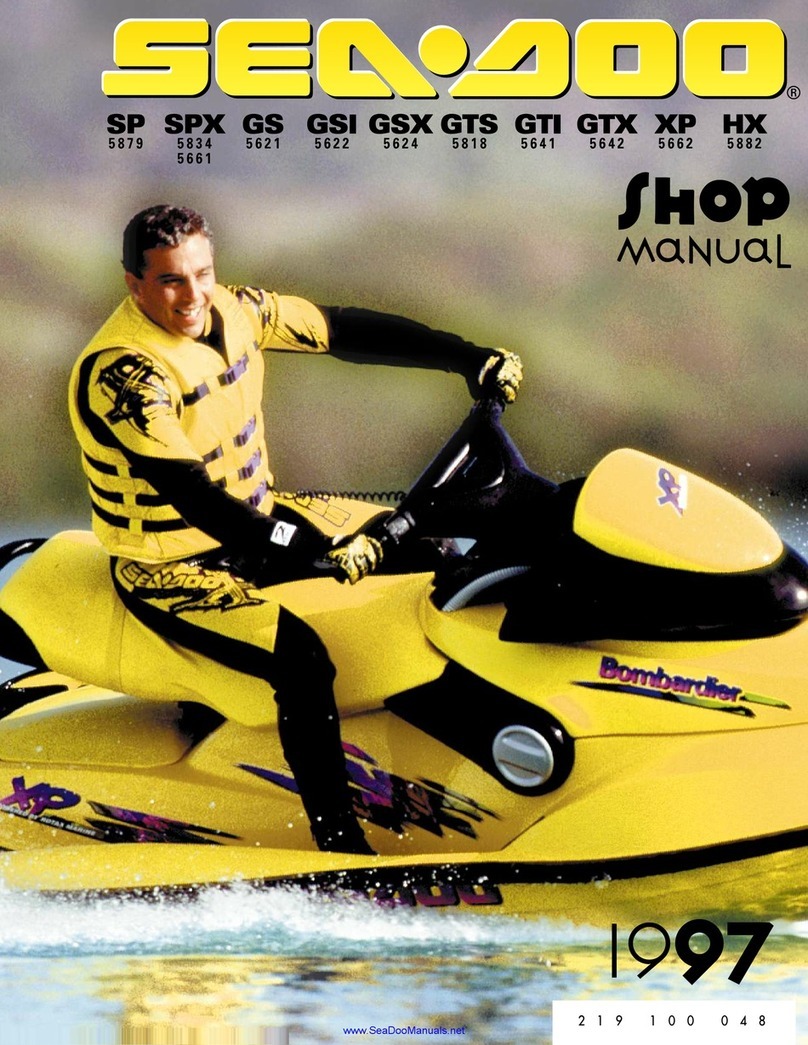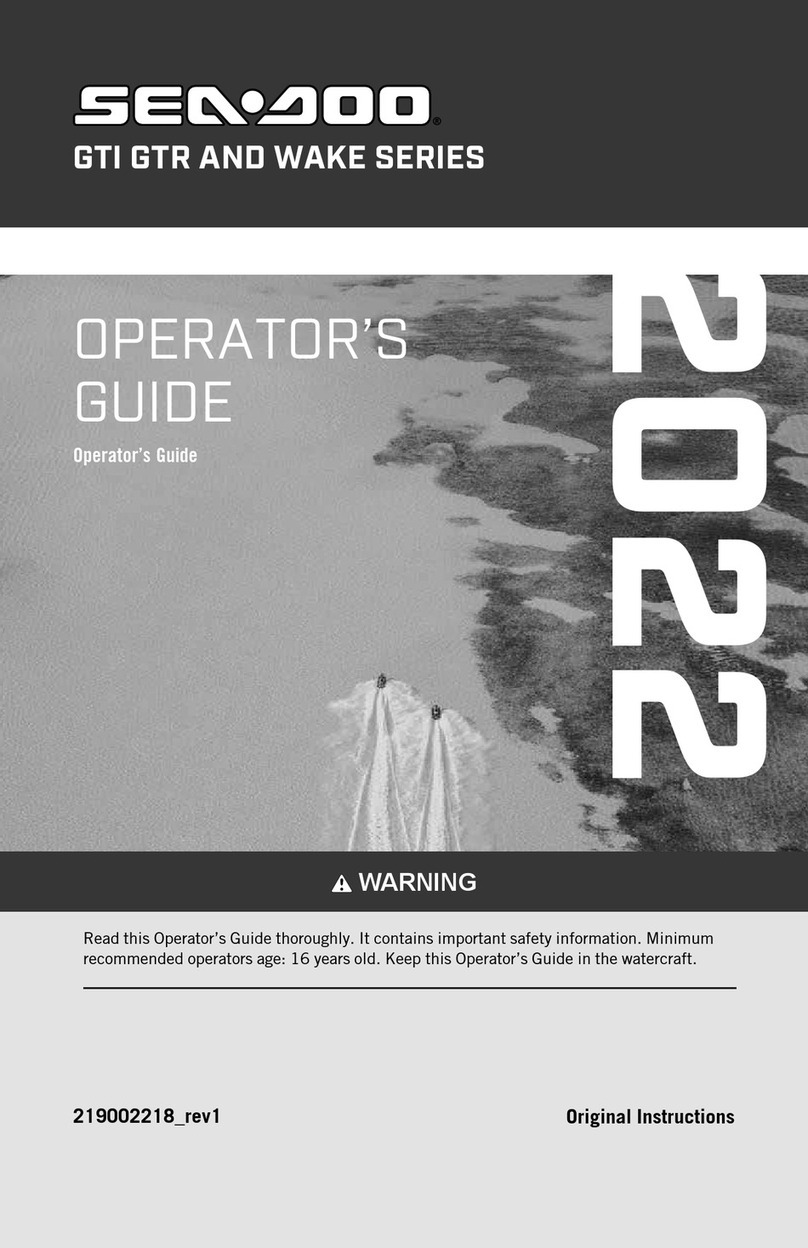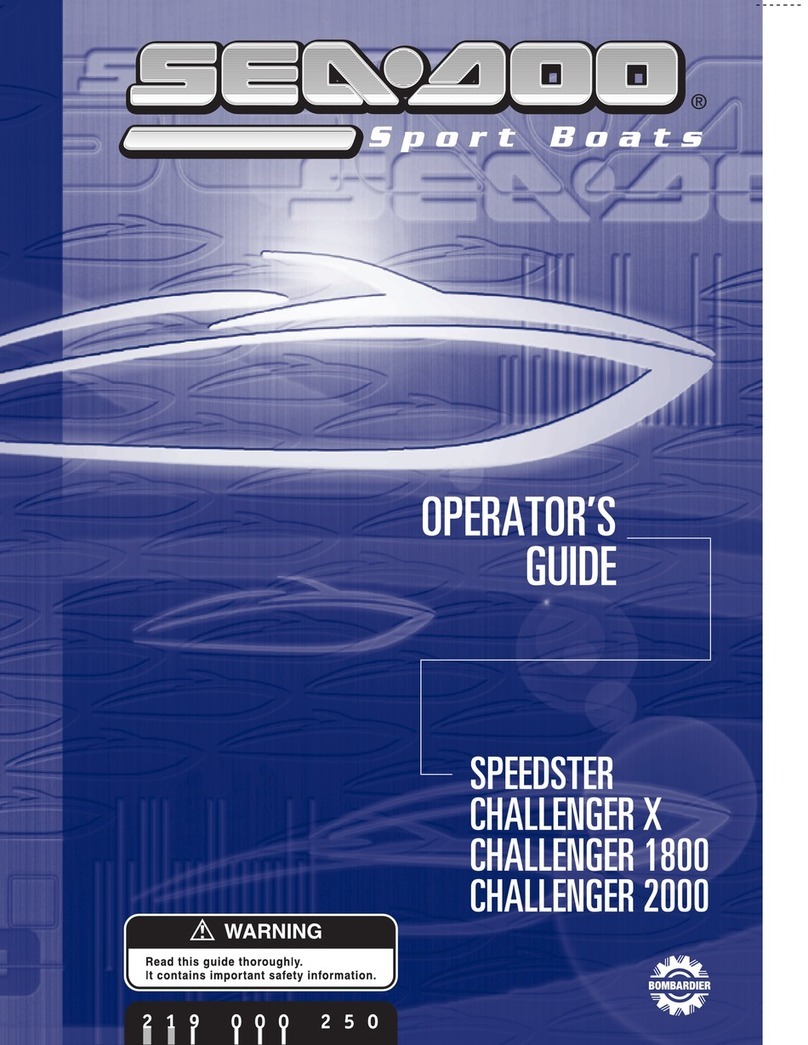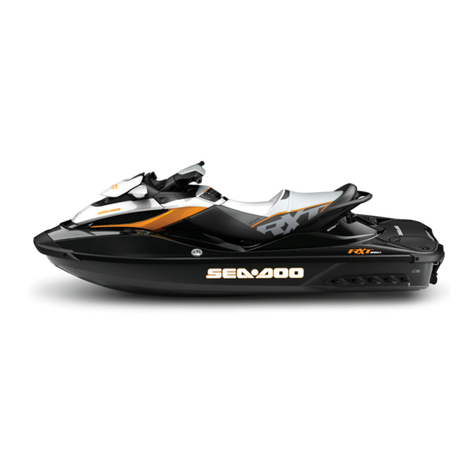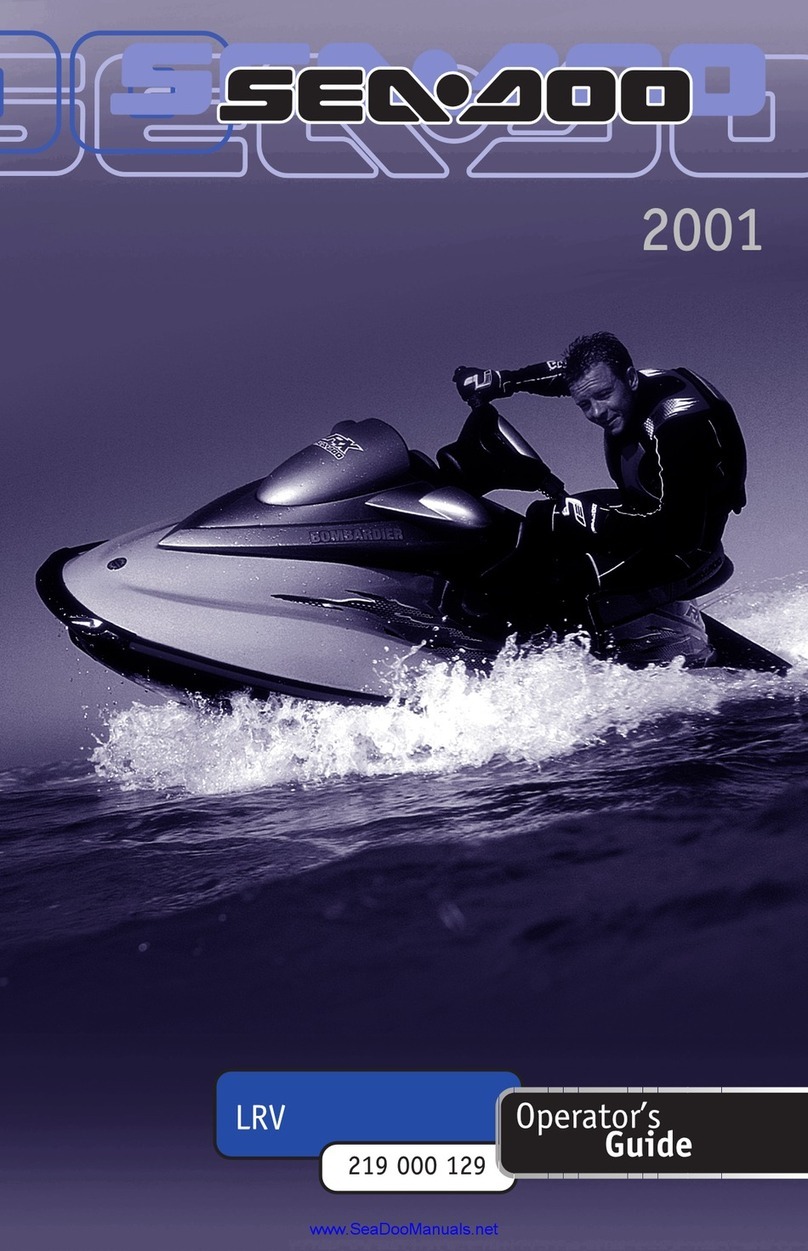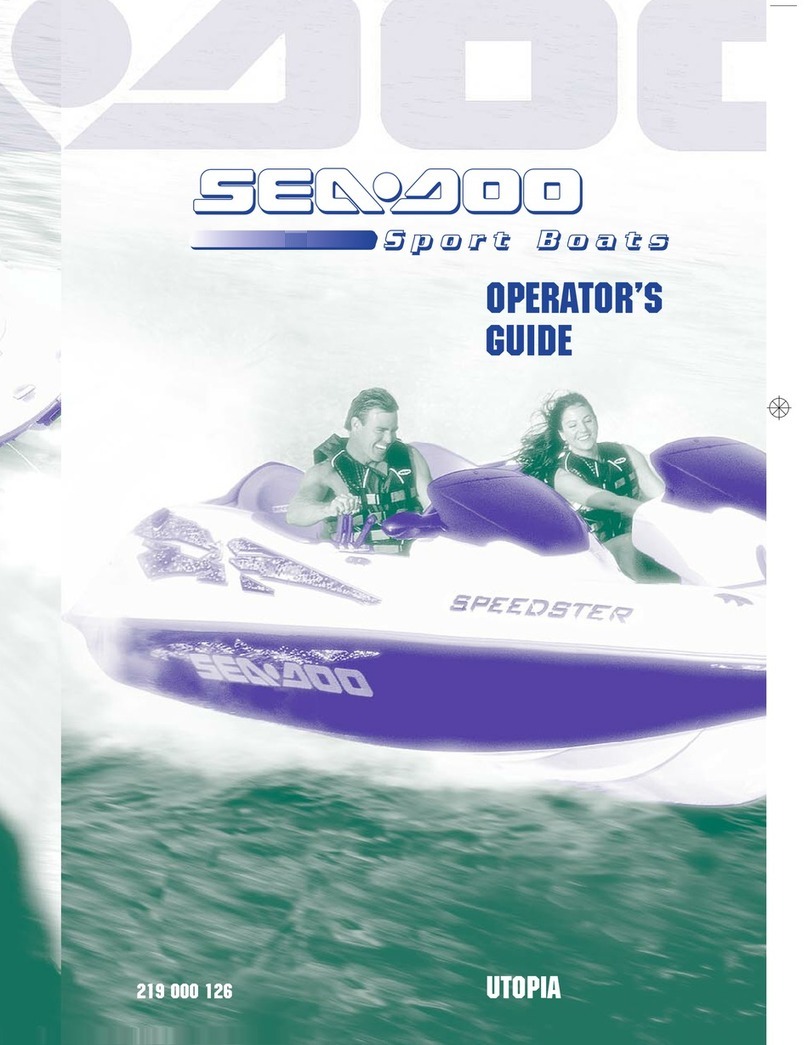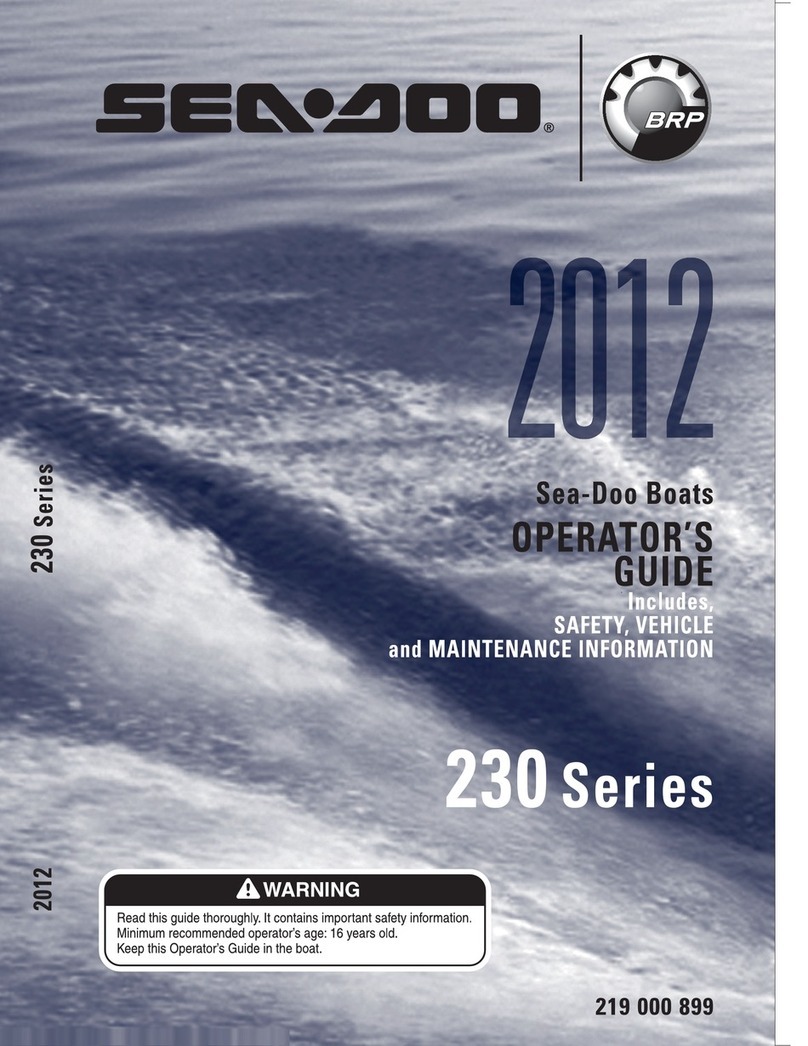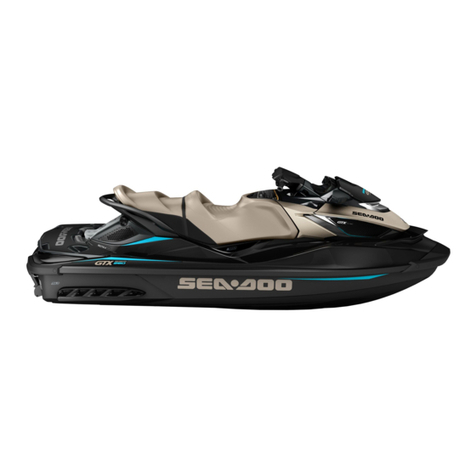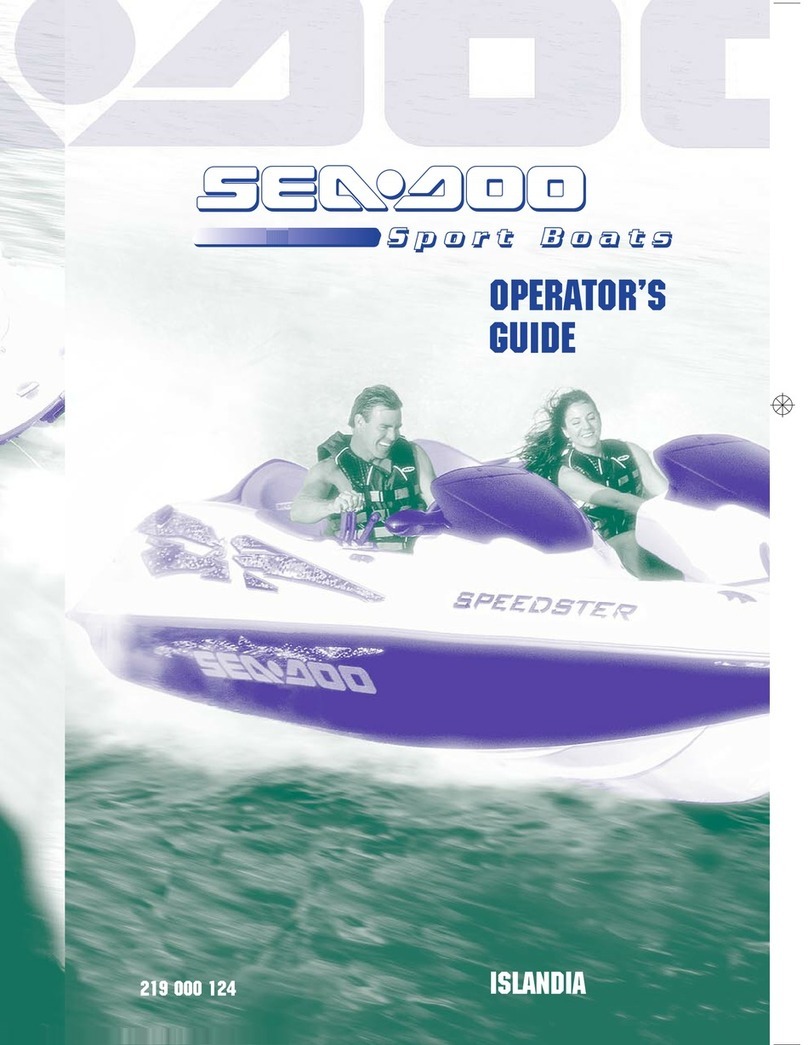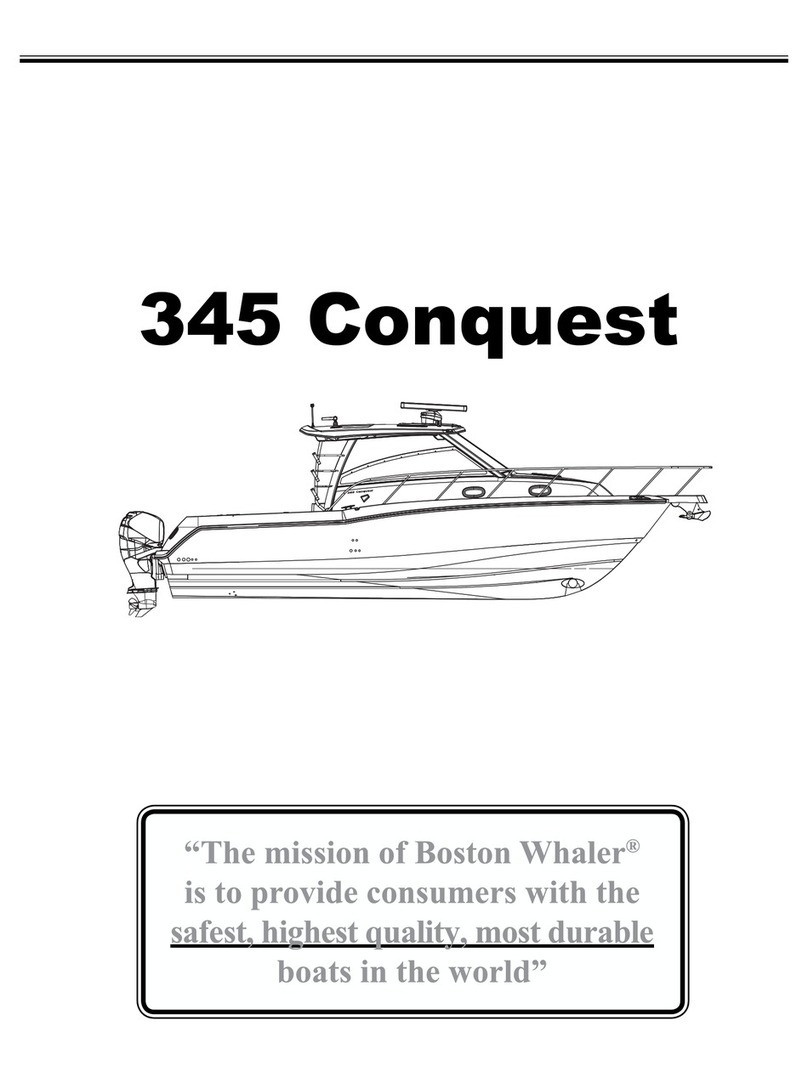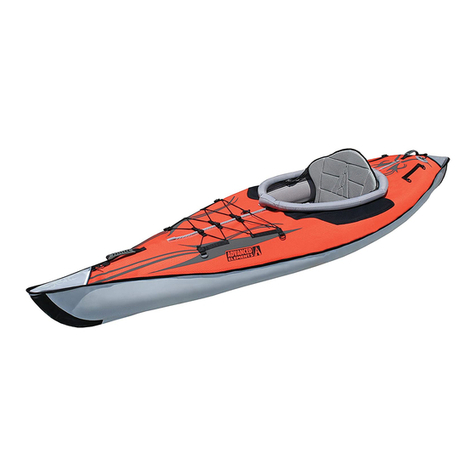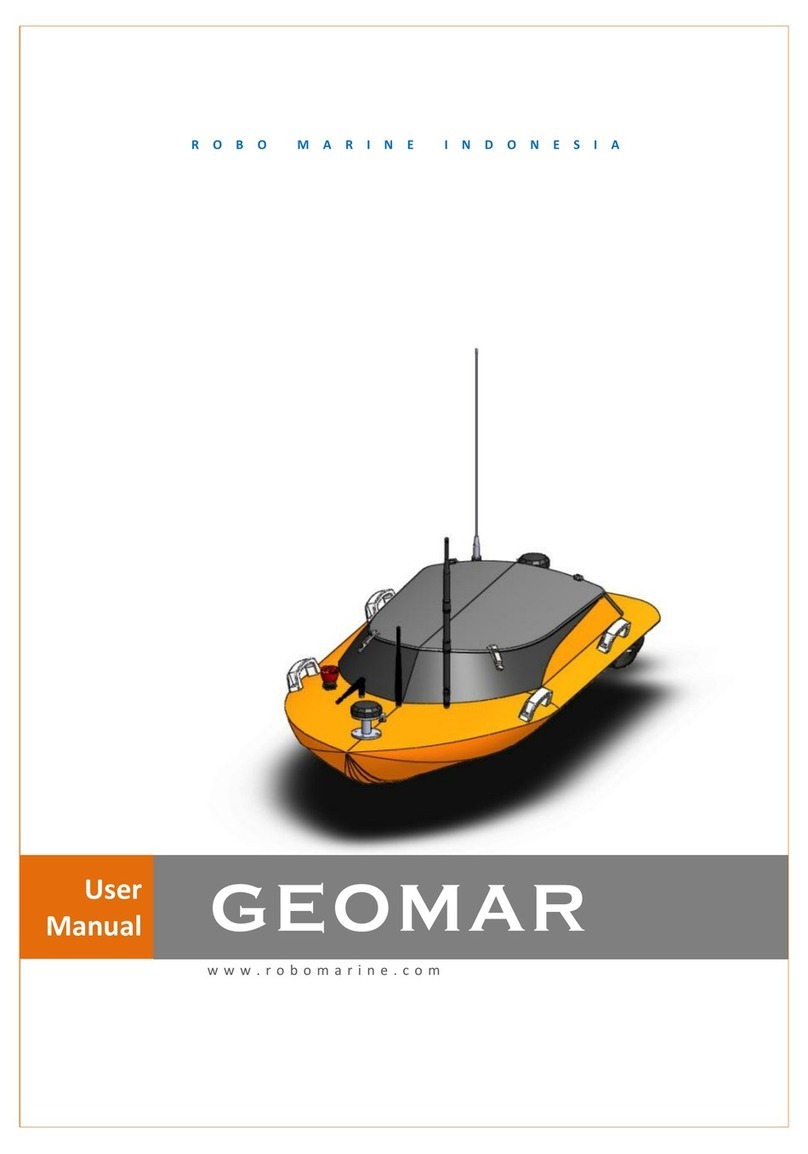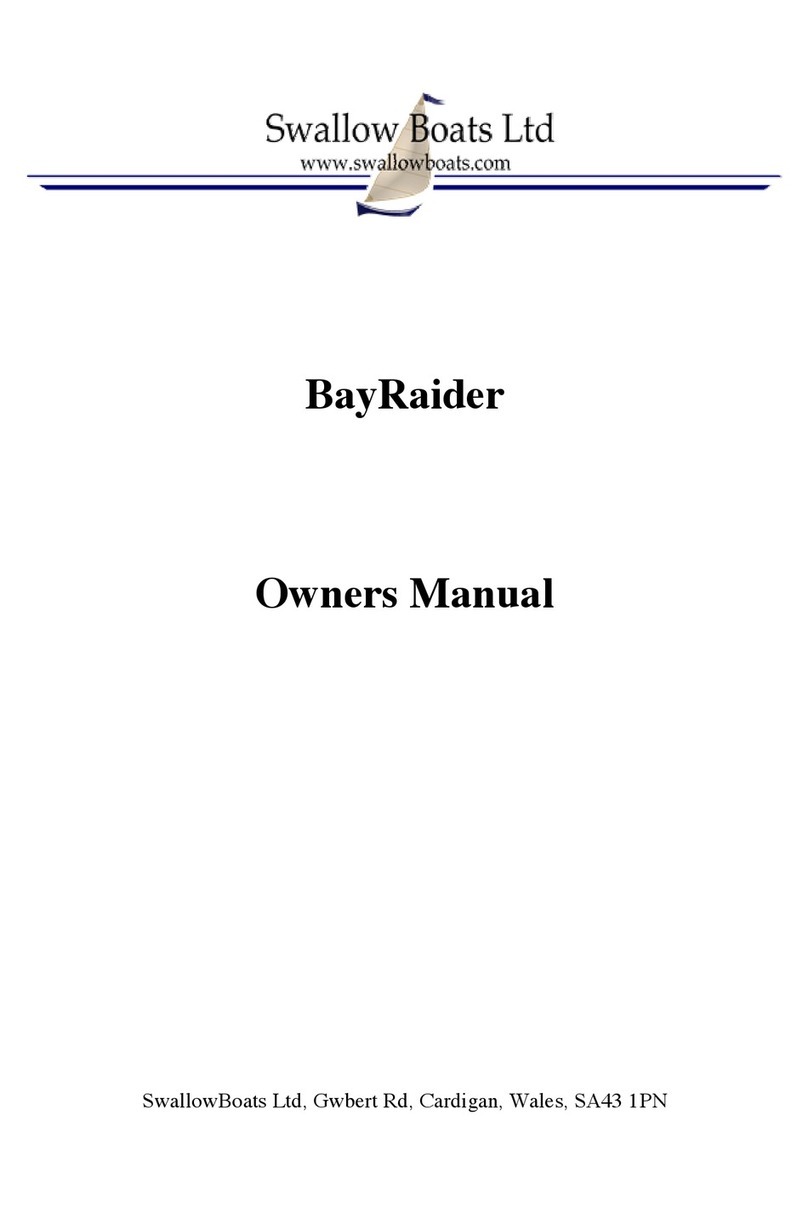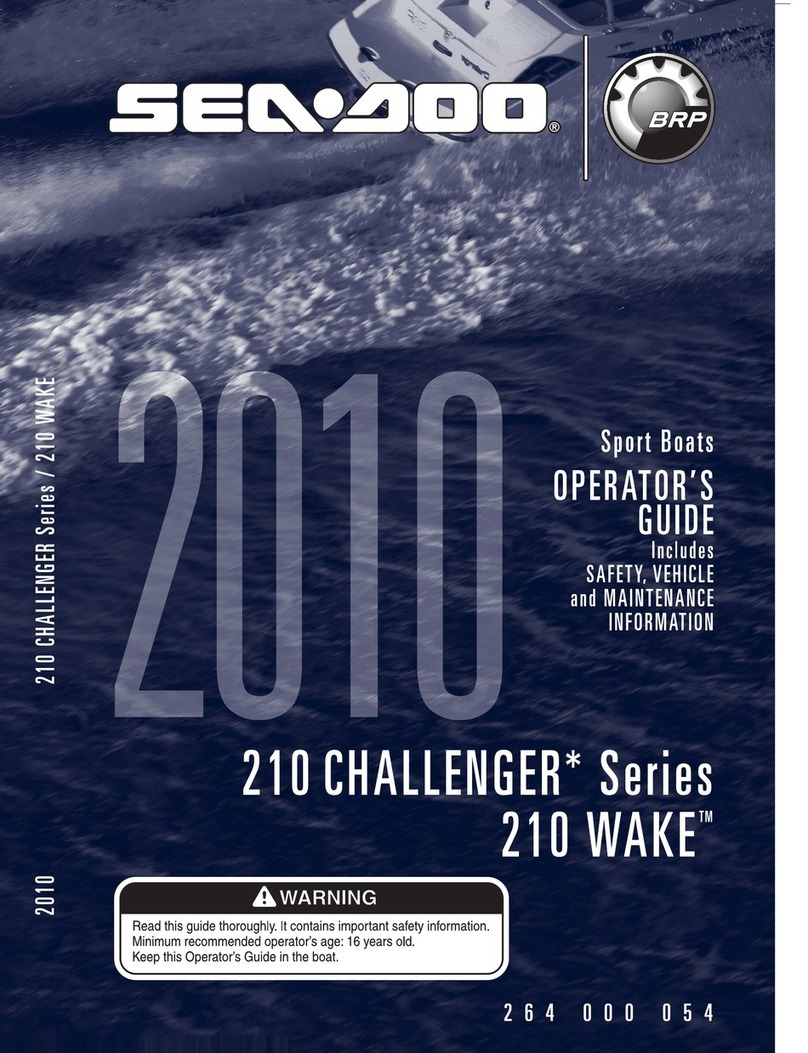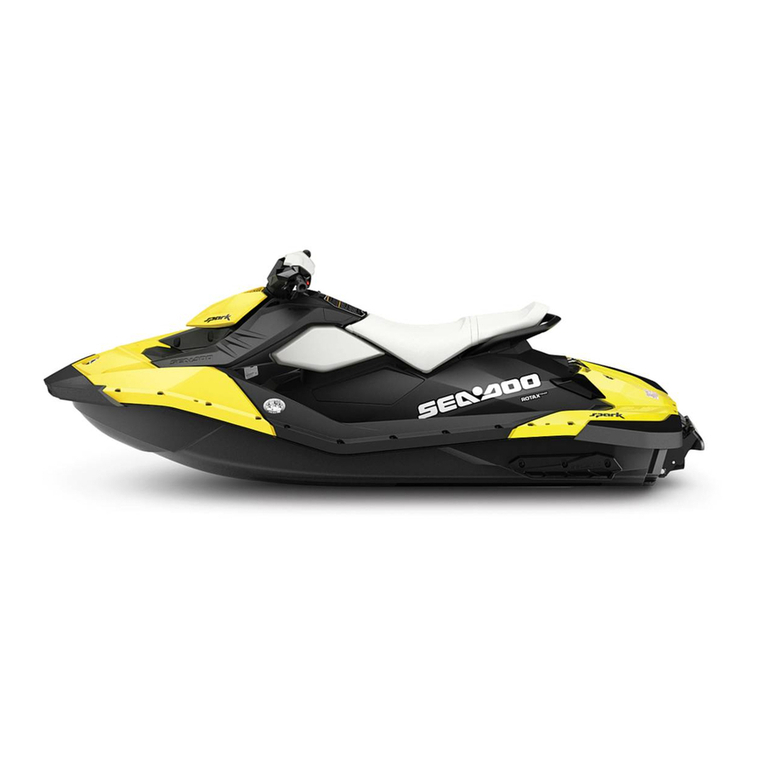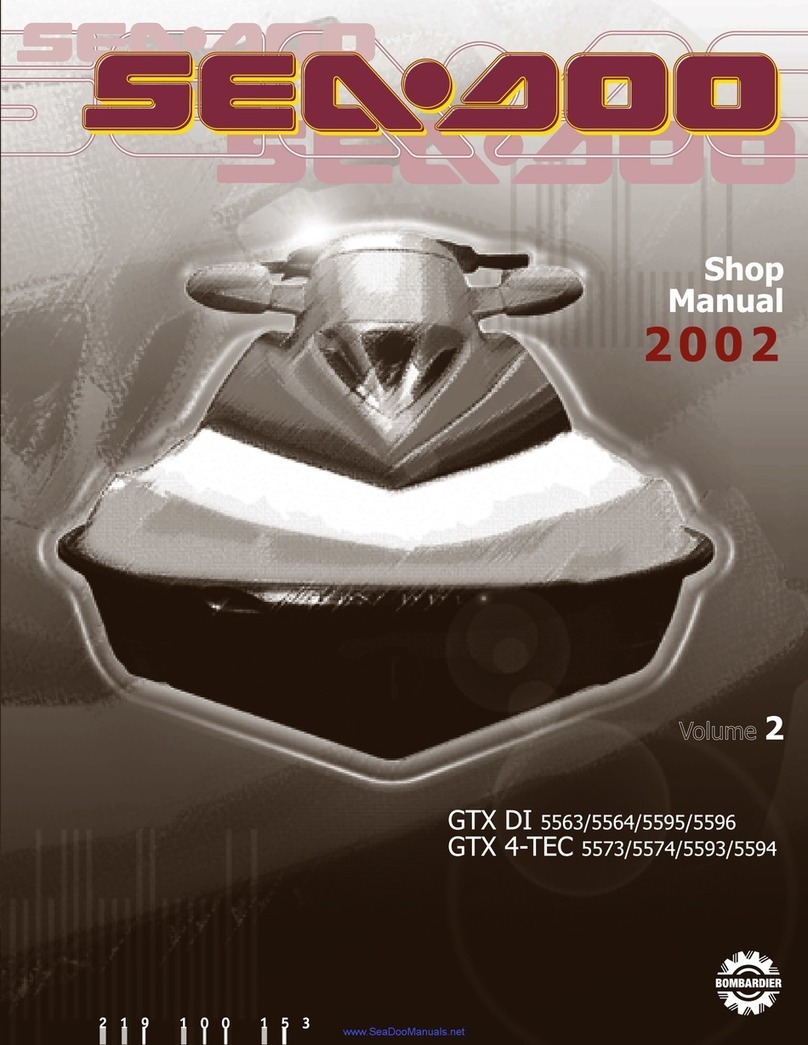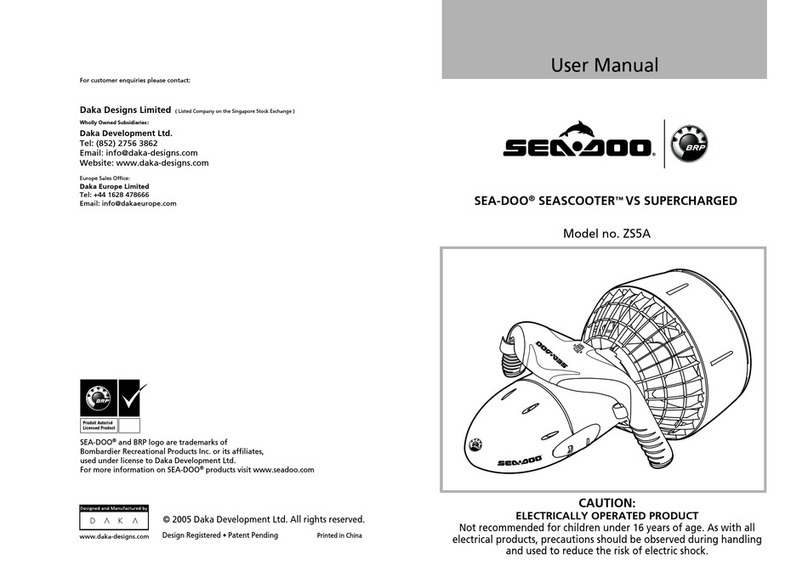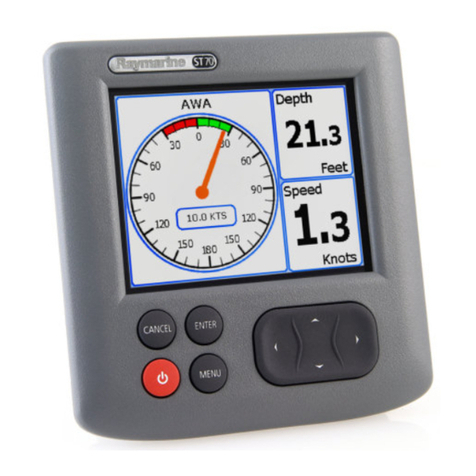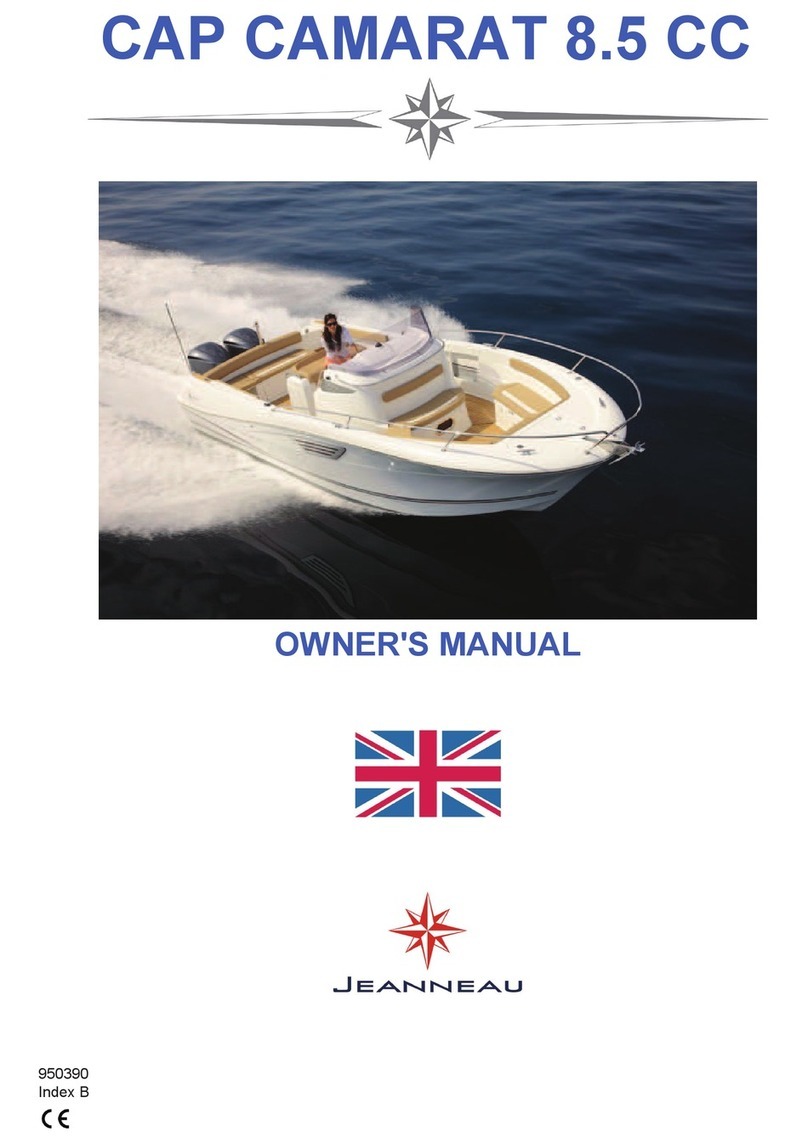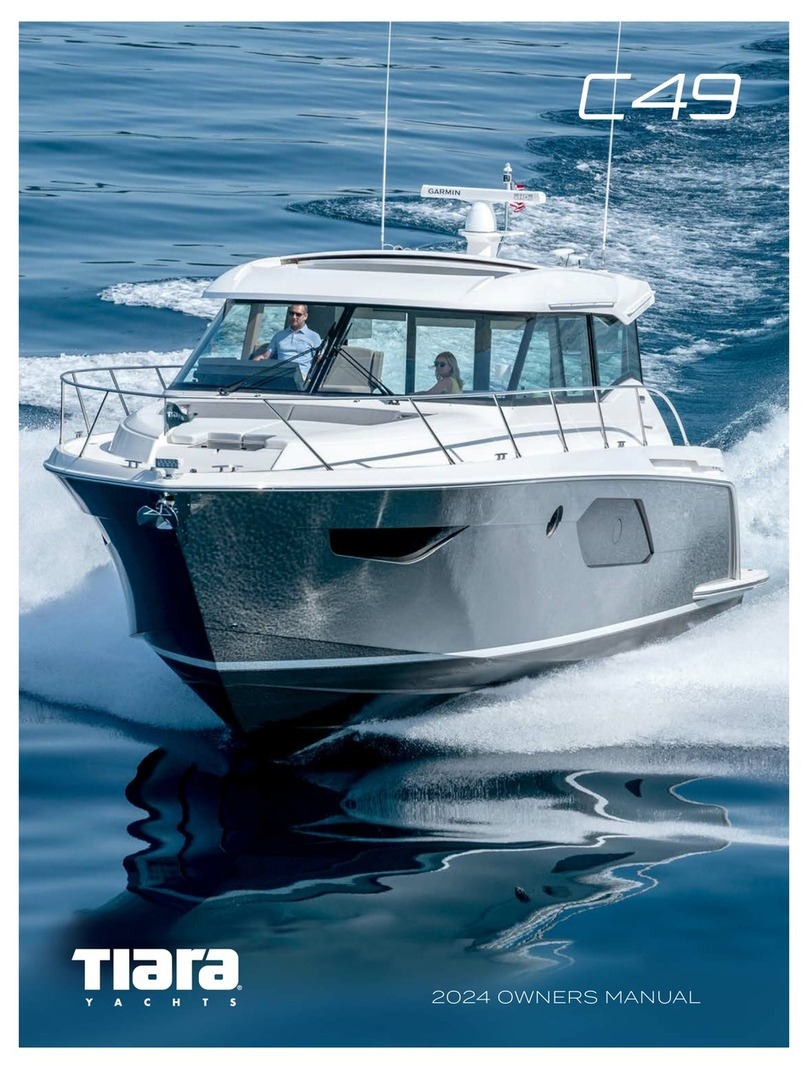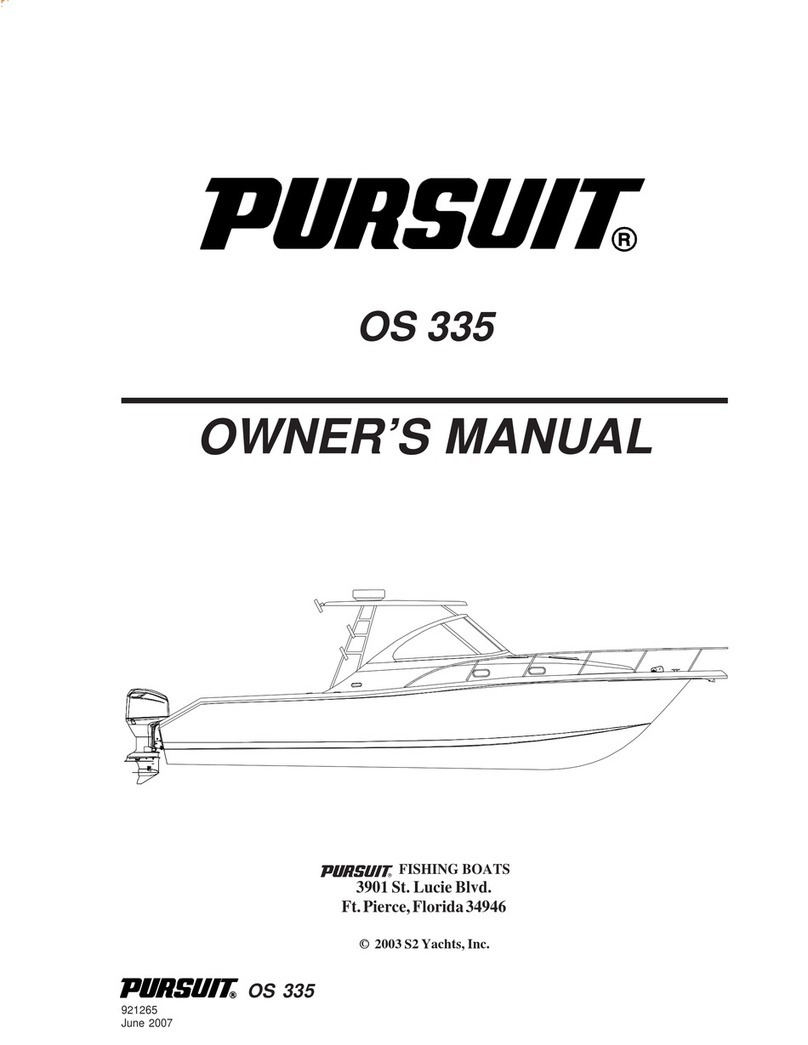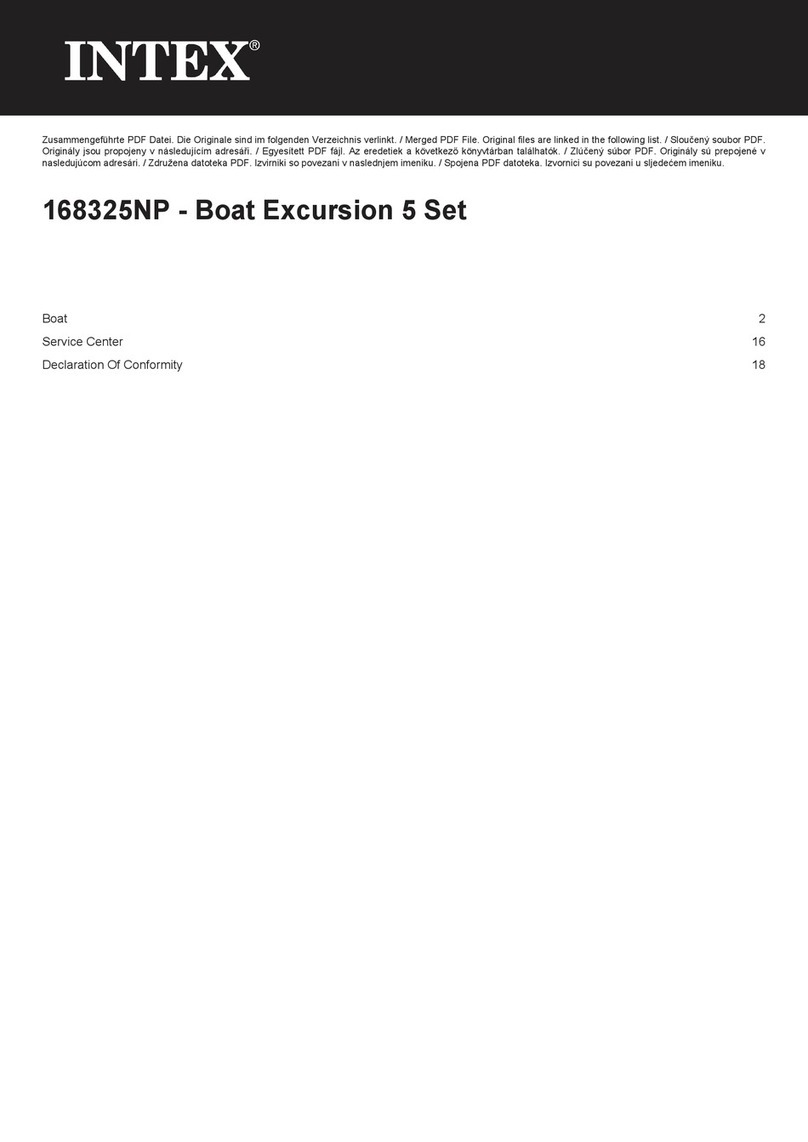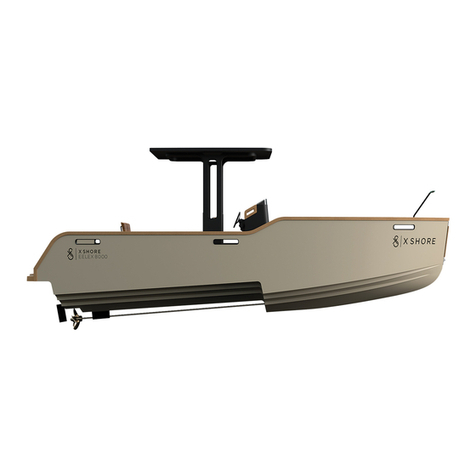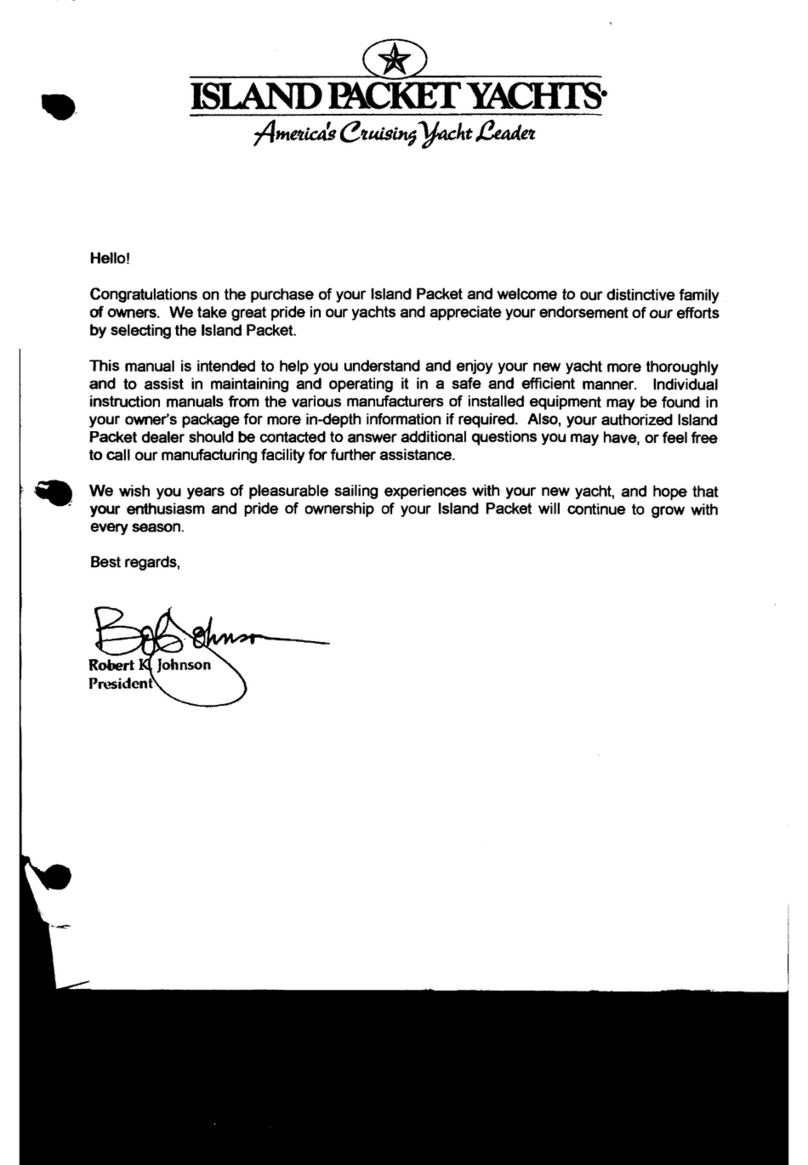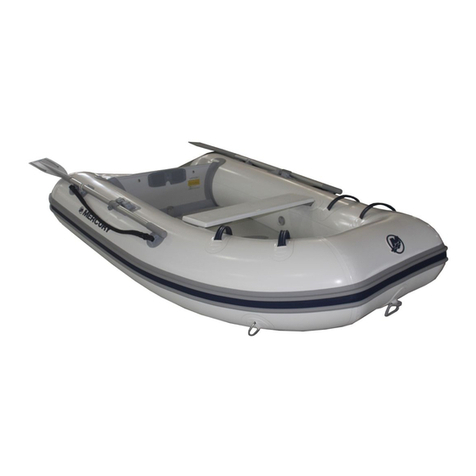
GENERAL PRECAUTIONS
Avoid Carbon Monoxide
Poisoning
All engine exhaust contains carbon
monoxide, a deadly gas. Breathing car-
bon monoxide can cause headaches,
dizziness, drowsiness, nausea, confu-
sion and eventually death.
Carbon monoxide is a colorless, odor-
less, tasteless gas that may be present
even if you do not see or smell any en-
gine exhaust. Deadly levels of carbon
monoxide can collect rapidly, and you
can quickly be overcome and unable
to save yourself. Also, deadly levels of
carbon monoxide can linger for hours
or days in enclosed or poorly ventilated
areas. If you experience any symp-
toms of carbon monoxide poisoning,
leave the area immediately, get fresh
air and seek medical treatment.
To prevent serious injury or death from
carbon monoxide:
– Never run the watercraft in poorly
ventilated or partially enclosed ar-
eas such as watercraft houses, sea-
walls or other boats in close prox-
imity. Even if you try to ventilate
engine exhaust, carbon monoxide
can rapidly reach dangerous levels.
– Never run the watercraft outdoors
where engine exhaust can be drawn
into a building through openings
such as windows and doors.
– Never stand behind the watercraft
while the engine is running. A per-
son standing behind a running en-
gine may inhale high concentrations
of exhaust fumes. Inhalation of con-
centrated exhaust fumes that con-
tain carbon monoxide can result in
CO poisoning, serious health prob-
lems and death.
Avoid Gasoline Fires and
Other Hazards
Gasoline is extremely flammable and
highly explosive. Fuel vapors can
spread and be ignited by a spark or
flame many feet away from the en-
gine. To reduce the risk of fire or explo-
sion, follow these instructions:
– Use only an approved red gasoline
container to store fuel.
– Strictly adhere to the instructions in
FUELING
section.
– Never start watercraft if gasoline or
gasoline vapor odors is present in
theenginecompartment.
– Never start or operate the engine if
the fuel cap is not properly secured.
– Do not carry gasoline containers in
the storage bin (if equipped) or any-
whereelseonthewatercraft.
Gasoline is poisonous and can cause
injury or death.
– Never siphon gasoline with your
mouth.
– If you swallow gasoline, get any in
your eyes, or inhale gasoline vapors,
see a doctor immediately.
If gasoline is spilled on you, wash
thoroughly with soap and water and
change your clothes.
Avoid Burns from Hot Parts
Certain components may become hot
during operation. Avoid contact dur-
ing and shortly after operation to avoid
burns.
Accessories and
Modifications
Do not make unauthorized modifica-
tions, or use accessories that are not
approved by BRP. Since these changes
have not been tested by BRP, they
may increase the risk of accidents or
injuries, and they can make the water-
craft illegal for use on water.
See your authorized Sea-Doo dealer
for available accessories for your wa-
tercraft.
8________ SAFETY INFORMATION ________

